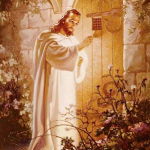The unsigned editorials in our paper tend to be conservative. Not in the sense of right-wing, but in the sense of trying not to offend anybody by going out on a limb. They offer qualified opinions — very, very qualified opinions. On national matters, they circumspectly avoid getting ahead of the curve.
So we were a bit startled last night in the newsroom to see today's lead editorial, "Military draft may be way to sustain Army on all fronts."
Noting that both Rep. Charlie Rangel, D-N.Y., and Sen. Chuck Hagel, R-Neb., have talked about reinstating conscription, our editorial board writes:
Both argue that economic conditions and scarce job opportunities in some regions have induced more poor and middle-class people to volunteer. Both say that is acceptable in normal times, but during war mandatory military service would distribute the call over the population more equitably.
That's right.
The Army is scrambling to fulfill the demands on it by extending soldiers' tours in Iraq and relying heavily on reservists and the National Guard.
A draft would not produce properly trained soldiers for a few years. However, Sen. Hagel contends that if Iraq becomes what he calls "a generational event" — meaning U.S. involvement might last as long as a decade — it would be fairer if all young people were required to serve.
A new draft would presumably be universal, meaning it would include men and women, even though women still do not serve as battlefield infantry.
The end of the editorial retreats a bit — "It should be discussed," they conclude. But still.
Andrew Greeley speculates that a draft may already be in the works. In the Chicago Sun-Times Fr. Greeley writes:
There's a sign on the horizon, no bigger than a man's hand, that there's a military draft in the works. The Defense Department has announced that Selective Service is making preparations for another draft, "in case one is needed." The New York Times in an inane editorial pleads with the president to articulate a goal for the war that if it "was clear and comprehensive and people understood how to reach it, then Mr. Bush could . . . even bolster the desperately straitened military with a draft if Americans understood the need to sacrifice."
If the editorial writers of the New York Times are talking about a new draft … then the idea is certainly being whispered about in the upper echelons of American society.
And if the editorial writers of The News Journal are talking about a new draft, then the idea has spread beyond just the upper echelons.
Gen. John Abizaid, meanwhile, said Friday that he might ask for additional troops beyond the 20,000 more he recently requested.
The Pentagon has already extended by 90 days the tours of 20,000 soldiers; they were to return to their home bases after a year in Iraq. The Pentagon has offered to find new troops to take their place, to keep the deployment at 135,000, if the military deems it necessary. General Abizaid gave the clearest indication yet that he would ask for those troops.
The question is where the Pentagon is going to "find" these new troops. Our military is stretched thin already. Support from our coalition partners is fading (Spain, Honduras, the Dominican Republic and Norway have all recently announced they will be leaving Iraq). And military retention and recruitment is sagging along with morale.
As Greeley says:
A draft would not be proposed before the election — if it were, Bush would be wiped out in a landslide. But a wise person would not bet against the draft being proposed next January.
I wouldn't bet against it either, but it's not my greatest fear.
The Bush administration, as John DiIulio pointed out, seems to view every decision through the lens of political gain. There's no reason to suspect this pattern would change even if Bush is kept in office after the next election.
A draft to increase the size of America's conventional forces would still be unpopular, even after the election. For a war with a clearer purpose and a clearer necessity that might not be the case, but for this war, a draft would not be viewed favorably by the vast majority of the public.
What I fear is that in a second term, Karl Rove might find poll numbers suggesting that fewer Americans would be opposed to the use of tactical weapons than to the reinstatement of the draft. "The numbers look even better if we use the term 'mini-nukes,'" I can imagine him telling the president. The talking head brigades would hit the news shows, arguing that it would be better for us to employ "mini-nukes" abroad than to wait until terrorists employed them here.
My fear is that if it came down to a perceived choice between the unpopular and the unthinkable, this administration would choose the unthinkable.
















